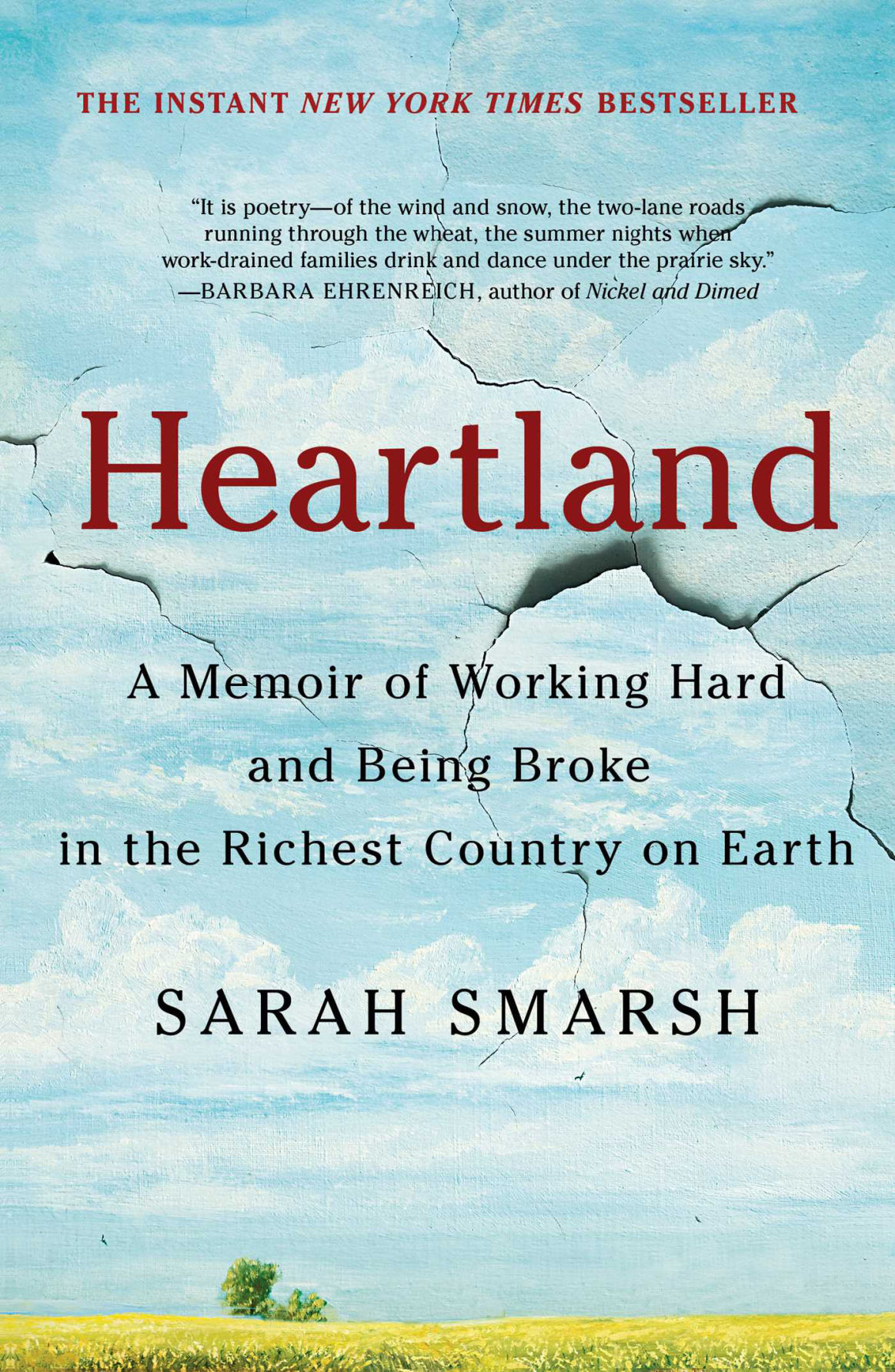Sarah Smarsh grew up poor in rural southern Kansas in the 1980s and 1990s. As she shares the history and experiences of her family in “Heartland: A Memoir of Working Hard and Being Broke in the Richest Country on Earth,” Smarsh weaves in observations about American history, economics and sociology.
This beautifully written, well-researched memoir is as much about working-class poverty as growing up in the heartland. Prevalent in our culture—perhaps especially in rural America—is the notion that if you work hard enough, you will achieve success. Reality is more complicated, however, as Smarsh illustrates throughout the book. You can work long hours, as hard as your body allows, and still find the American dream out of grasp.
“You got what you worked for, we believed. There was some truth to that. But it was not the whole truth,” Smarsh writes.
Speaking of her paternal side, Smarsh says, “I was born a fifth-generation Kansas farmer, roots so deep in the country where I was raised that I rode tractors on the same land where my ancestors rode wagons.”
Sarah’s dad, Nick, worked those fields while he was growing up. He briefly had his own construction business and was able to buy a plot of land and to build a house and barn. His marriage to Sarah’s mother, Jeannie, didn’t last, and he had to take various off-farm jobs to stay afloat.
On Smarsh’s maternal side are multiple generations of teenage mothers. Her own mother, Jeannie, was 17 when Sarah was born. Recognizing their struggles, Smarsh made a deliberate decision early on to avoid teen motherhood and the seemingly insurmountable obstacles it puts in the way of both mother and child.
Smarsh writes her memoir to August, the unborn child she would have had as a teen if she had followed in the footsteps of her mother and grandmothers. Although it’s an interesting storytelling device, I personally found it distracting when Smarsh directly addressed this imaginary “you.” Those narrative segments temporarily pulled me out of a story I was already thoroughly engaged by while reading “Heartland.”
Smarsh’s story is a painful one, but she is not maudlin or overly sentimental while discussing her extended family members’ experiences with poverty, addiction, domestic violence and mental health issues. She also discusses unsafe working conditions, lack of medical care and the effects of national policy on farm families—which can seem rather far removed from immediate concerns like whether the combine is working at harvest time.
Although some High Plains Journal readers may not share Smarsh’s political views or agree with her proposed solutions to the problems she exposes, they likely have much in common with her and can relate to the stories she shares. It’s clear she loves the people and the land of Kansas. In “Heartland” she gives these rural people dignity and a voice.
Education, intelligence and hard work provided Smarsh a way out of cyclical poverty. She is a talented writer and educator. “Heartland” is a 2018 nonfiction finalist for the National Book Award and the Kirkus Prize.
Shauna Rumbaugh can be reached at 620-227-1805 or [email protected].



